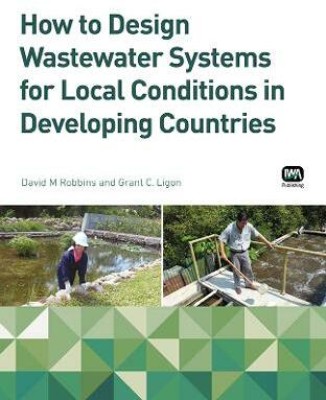How to Design Wastewater Systems for Local Conditions in Developing Countries(English, Electronic book text, Robbins David M.)
Quick Overview
Product Price Comparison
This is a practical handbook providing a step-by-step approach to the techniques used for characterizing wastewater sources and investigating sites where collection, treatment and reuse/disposal technologies will be installed. It is intended to help enable local implementation of on-site and decentralized wastewater management system (DWMS)for wide scale use in development settings. How to Design Wastewater Systems for Local Conditions in Developing Countries helps local service providers and regulatory officials make informed decisions through the use of tools, checklists and case studies. It includes a link to a web based community of on-site and decentralized wastewater professionals, which contains related tools and case studies. This handbook serves as a reference for training classes, certification programs, and higher education programs in civil and sanitary engineering. There is an increasing interest on the part of local government officials and private sector service providers to implement wastewater treatment systems to solve sanitation problems. The model presented in this handbook promotes activities that first generate data related to source and site conditions that represent critical inputs, and then applies this information to the technology selection process. Matching the most appropriate technologies to the specific needs of the wastewater project is the key that leads to long term sustainability. How to Design Wastewater Systems for Local Conditions in Developing Countries is an invaluable resource for public sector decision makers and private sector service providers in developing countries. It is also a useful text for students at engineering colleges in developing countries interested in taking a class that teaches the methods of decentralized wastewater management system (DWMS) development.


